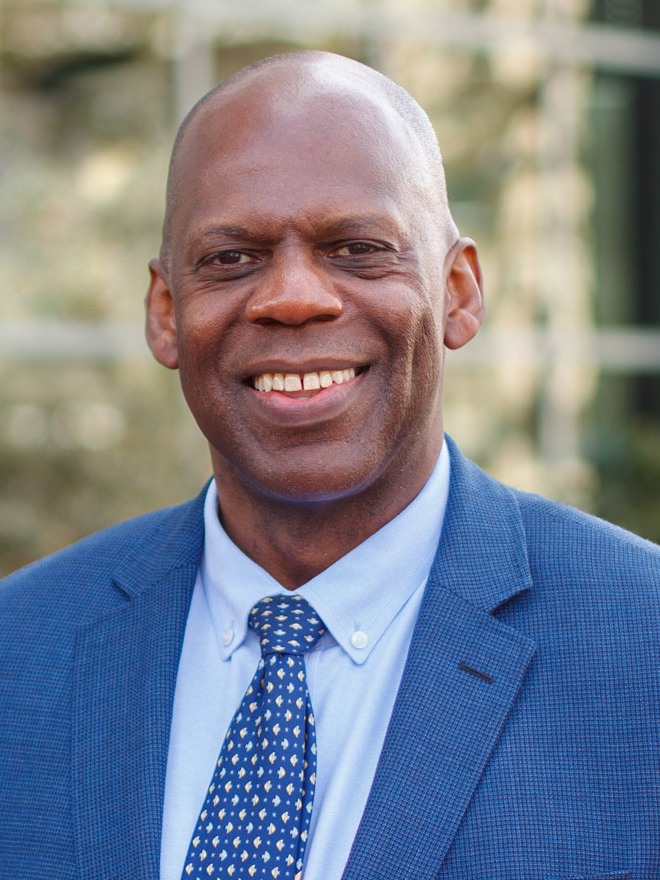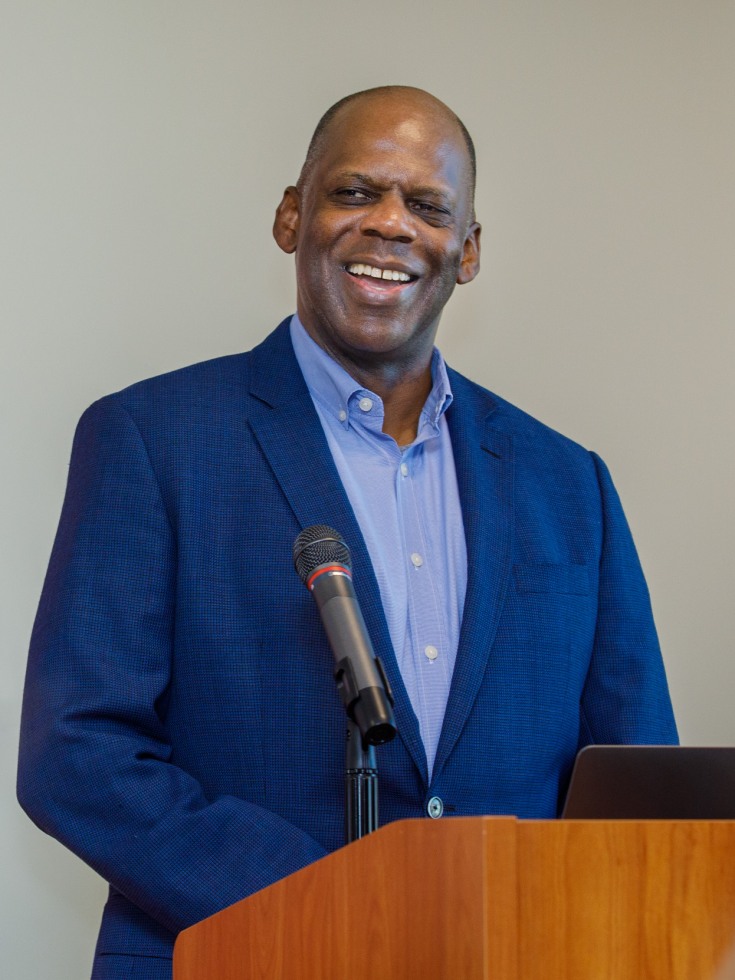Aubert first came to Brown in 2017 at Provost Richard Locke’s request. He joined renowned physicist Sylvester James “Jim” Gates Jr. and astronomer John Asher Johnson in the original cohort of distinguished senior scholars from historically underrepresented groups invited for temporary appointments at Brown. “They told me about the other two,” Aubert says with characteristic humility, “and I thought they were reaching out to me for a recommendation for somebody to join the rocket scientists.” Aubert laughed, remembering when he realized they wanted him to take on a position as a Provost Visiting Professor. “I was perplexed.”
But Aubert’s background in government and business, including work at the CDC and leading analytics at private healthcare companies, set him apart from many of his academic peers, and mentoring students came naturally. Although he wasn’t a traditional pick, and despite his initial hesitation, Aubert quickly fell in love with Brown.
“It was a great experience. I got to teach in Ira Wilson’s class, so it gave me more touch points with students and I really enjoyed that.” After his one-year appointment was up, Aubert was asked to become faculty director of Brown’s Presidential Scholars program, a cohort-based program that brings high-achieving students from lower-and-middle-income families to Brown. In 2021, he joined the School of Public Health’s leadership team as interim associate dean for diversity and inclusion, along with his faculty appointments as visiting professor of the practice of health services, policy and practice, and of race and ethnicity in America.
We spoke to Dean Aubert about his transition to interim dean, his thoughts on diversifying higher education, and the ways Brown SPH is preparing to meet the public health challenges of the future.
You took on the role of Interim Dean of the School of Public Health at an extraordinary time, not just in the world and for public health, but for the School itself. How did you decide to take over the reins of SPH?
First, let me say that I really enjoy being part of the Brown School of Public Health community. I love that part of what I do. And it’s an exciting time for the school — we’re fairly young, but we’re undergoing rapid growth. When Dean Jha was called to serve the country, President Paxson and Provost Locke asked me to fill in for him and I also saw it as a call to service.
I welcomed the opportunity to help execute on Ashish’s expanded vision for the school. We have great faculty, we have tremendous students, we are situated in a community and in a state where you can actually measure impact. That’s pretty exciting.
What are some highlights of your tenure so far?
We continue to attract world-class faculty, and applications for our graduate programs have shown robust growth. Jennifer Nuzzo has joined the faculty and hit the ground running, putting together the Pandemic Center. The center will be recognized for its academic work, but also for developing public health leaders and students with knowledge and expertise in the space of pandemic preparedness. She has contacts and experience both locally and globally, with a vision to put students in leadership positions around the world. I think that’s very exciting.

